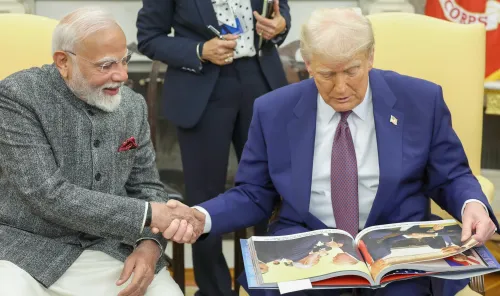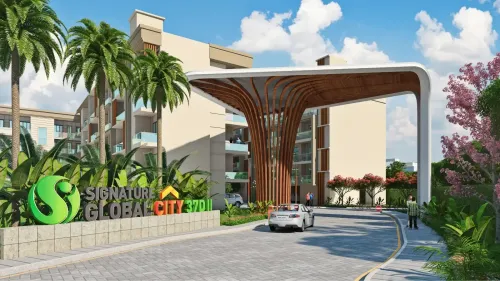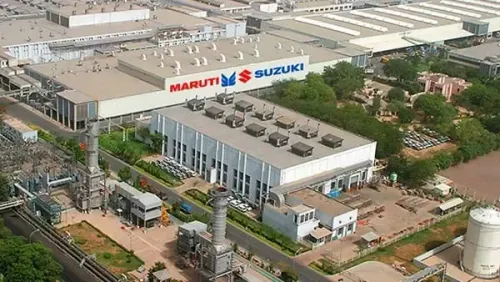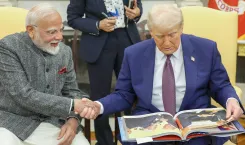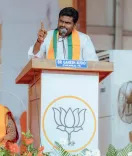How Will the New Policy Measures Enhance India's Export Ecosystem?
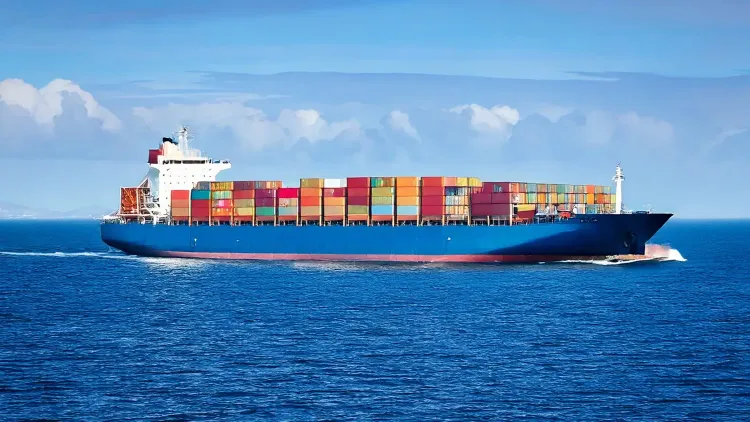
Synopsis
Key Takeaways
- Export Promotion Mission (EPM) aims to enhance India's export capabilities.
- Credit guarantee scheme offers affordable trade finance for MSMEs.
- The initiative prioritizes sectors like engineering goods.
- Focus on export-led growth to boost the economy.
- Aligns with the goal of achieving $2 trillion in exports by 2030.
New Delhi, Nov 13 (NationPress) The government's endorsement of the Export Promotion Mission (EPM) and a credit guarantee scheme is anticipated to enhance India's export capabilities and provide substantial assistance to MSMEs and first-time exporters, as stated by industry associations on Thursday.
This mission aims to assist exporters in discovering new markets and launching innovative products. It will also considerably enhance the ease of doing business. The credit guarantee scheme will ensure that affordable trade finance is available for MSMEs, according to EEPC India.
“The landscape of global trade policy has been rapidly changing, necessitating prompt policy measures to address emerging challenges. Under the proactive leadership of Prime Minister Narendra Modi, the Government of India has consistently taken bold initiatives, often anticipating potential issues. The latest policy actions are progressive and will lay the groundwork for India's robust position in global trade,” remarked Adhip Mitra, Executive Director and Secretary of EEPC India.
As part of ongoing efforts to bolster the nation's export sector, the government has sanctioned a remarkable Rs 25,060 crore EPM alongside a Rs 20,000 crore credit guarantee scheme. The EPM prioritizes the engineering goods sector in addition to other industries that have suffered due to the disruptive global trade policy, notably the steep 50 percent tariff imposed by the US on a significant portion of India's trade portfolio.
“In a time when the exporting community is grappling with challenges from multiple directions, this recent intervention offers vital support. It will play a crucial role in promoting export-led economic growth,” stated EEPC India.
Following these measures to facilitate trade, the engineering goods sector is optimistic about sustaining positive growth in the current fiscal year 2025-26. The high US tariff, which came into effect in late August, has added to the sector's difficulties, but “we are hopeful that an interim trade agreement with the US will be finalized soon,” it added.
Rajeev Juneja, President of the PHD Chamber of Commerce and Industry (PHDCCI), emphasized that this visionary initiative, with a five-year implementation plan, introduced in the Union Budget 2025–26, ensures enhanced policy stability, enabling businesses to invest consistently in capacity building, market growth, and export diversification.
The Mission’s dual sub-schemes, Niryat Protsahan and Niryat Disha, create a comprehensive support framework that promotes export growth and job creation, he mentioned.
Niryat Protsahan aims to enhance financial support for MSMEs and exporters to compete on a global scale through interest subsidies, collateral guarantees, and credit enhancement options. Meanwhile, Niryat Disha emphasizes non-financial support such as export quality certification, branding, logistics assistance, and participation in international trade exhibitions.
By tackling significant structural hurdles, including limited trade finance, elevated compliance costs, and insufficient export infrastructure, the Mission is set to elevate India’s global trade share and boost the exports-to-GDP ratio, according to Juneja.
Moving forward, PHDCCI asserts that the Export Promotion Mission aligns with India’s aspiration to achieve $2 trillion in exports by 2030, thereby contributing to the vision of Viksit Bharat by 2047.


